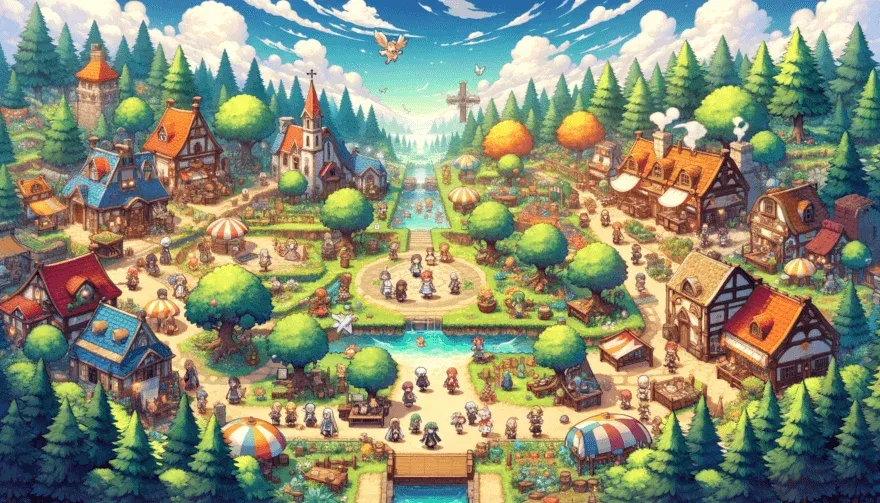RPGMaker Review: Navigating Its World of Game Creation

Since its inception in 1992, RPGMaker has evolved into a renowned game development tool, widely recognized for its role in creating numerous titles in Steam's catalog. As a 2D game-making application focused on Role-Playing Games, it has made its mark across various platforms, including PC, Mac, and even gaming consoles like the PlayStation and Nintendo Switch. The software, originally developed by ASCII (now Enterbrain), has been primarily using Ruby as the code core for scripting, highlighting its longevity and adaptability in the game development world.
User-Friendly Interface for Beginners and Veterans Alike
RPGMaker has always been lauded for its user-friendliness. The slogan on its Steam page, "POWERFUL enough for a developer SIMPLE enough for a child VERSATILE enough for any platform!", encapsulates its broad appeal. The software is accessible to those new to game development while still offering advanced features for seasoned developers. Its simplicity is one of its biggest selling points, allowing creators to focus on storytelling and creativity without the burden of intricate coding.
Community Support and Resources
One of the most significant aspects of RPGMaker is its robust community support. With a history that spans over three decades, it has cultivated a vast network of helpful users and resources. The community, whether on forums, Discord servers, or other platforms, provides invaluable support for both newcomers and experienced users. Additionally, the plethora of available tutorials and guides, ranging from official website PDFs to YouTube channels like Driftwood Gaming, offer comprehensive learning tools for anyone delving into game development with RPGMaker.
Features and Tools Analysis
RPGMaker's package includes key components like a system editor, a scenario-scripting tool, and a sprite-rendering/animation tool called Anime Maker. The system editor, described as the most intuitive tool, allows for the creation of objects, creatures, powers, and characters. However, it's noted that RPGMaker can lose functionality in its layers of lists, and its dungeon editor is seen as limited and unkind. The scenario editor and Anime Maker provide the ability to animate the game system and create custom art, respectively, although they also have limitations in terms of complexity and intuitiveness.
RPG Maker MZ: A Step Forward with Limitations
RPG Maker MZ, the latest iteration, introduces new features like the return of layering in map editing, Time Progress Battle System options, and a new character generator. These additions enhance the tool's usability, particularly for those creating classic RPG-style games. However, RPG Maker MZ also has its drawbacks, such as a steep learning curve for importing custom assets, gaps in the help section, and a reliance on user-generated plugins. Despite these issues, it's regarded as the best version of RPG Maker yet, offering a good foundation for beginners in game design.
Pricing and Additional Content
RPGMaker MV, another popular version, is priced at $80 on Steam, which is considered reasonable for its capabilities. However, the software's expansive range of DLCs, over 200 in the store, can significantly add to the overall cost. These DLCs, while not essential, offer additional creative assets that can inspire and enhance game development projects.
Concluding Thoughts
RPGMaker, with its long history and continuous evolution, remains a staple in the realm of game development tools. Its balance of simplicity and depth, coupled with strong community support and a range of learning resources, makes it an attractive option for both novice and experienced game developers. While it has its limitations, particularly in terms of interface complexity and the need for custom assets to avoid stereotypical RPGMaker aesthetics, it stands out as a powerful tool for creating 2D RPGs and experimenting with game design.
